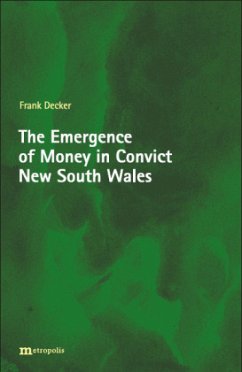What is money and how did it originate? These two seemingly simple questions have occupied scholars for centuries, yet to this day money remains a poorly understood economic category, surrounded by longstanding puzzles, paradoxes and error. The convict colony of New South Wales began in 1788 as a remote penal settlement with no special monetary arrangements. The colony had neither bank nor mint until 1817 and 1855 respectively, and, unlike the British colonies in North America, no state paper issues. These attributes make New South Wales an important case study for the emergence of money in a pre-industrial society and provide a much needed alternative reference point in the current debate about the nature and origins of money.Described as perhaps one of the best examples of economic history writing by a German author since the German Historical School, Frank Decker provides a very detailed and vivid account of how money first emerged in Convict New South Wales. Freed from the limitation of ancient sources that cloud the origins of money in antiquity, the book convincingly shows how private instruments monetised the New South Wales economy. While this book presents a new and revised account of New South Wales' monetary history based on primary sources, it also provides a deep and thorough analysis of the leading theories of money in the context of a remote colonial economy. This book is essential reading for anyone who wants to understand what money is and how it originated.
Bitte wählen Sie Ihr Anliegen aus.
Rechnungen
Retourenschein anfordern
Bestellstatus
Storno

